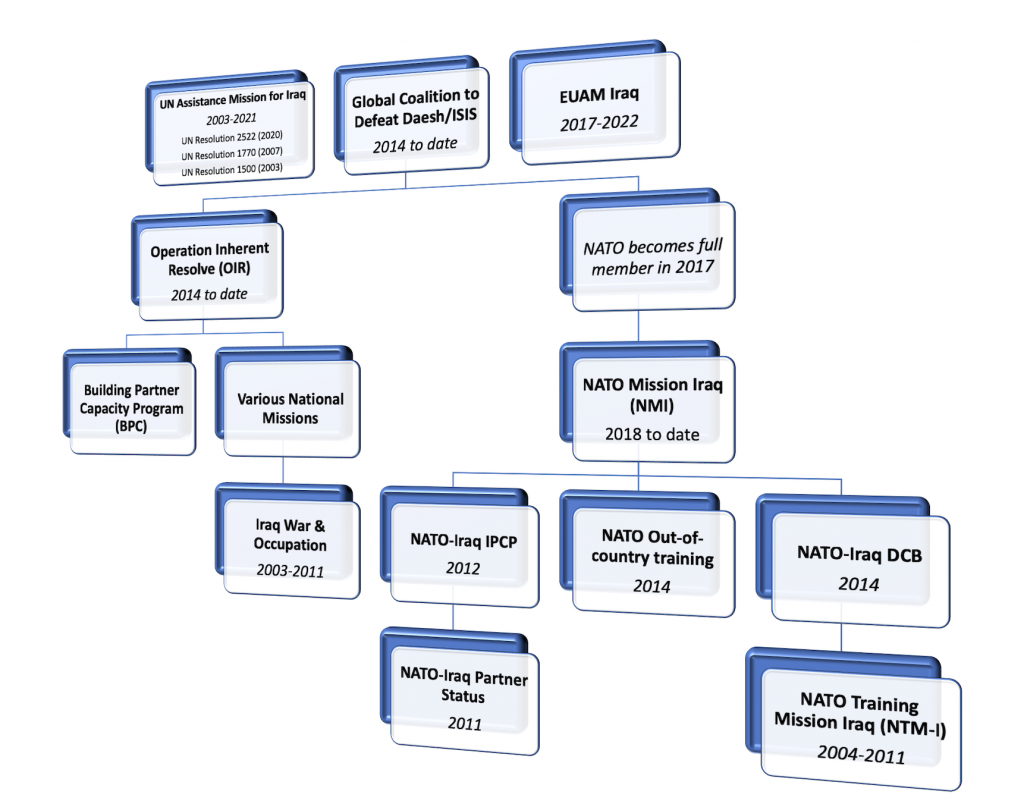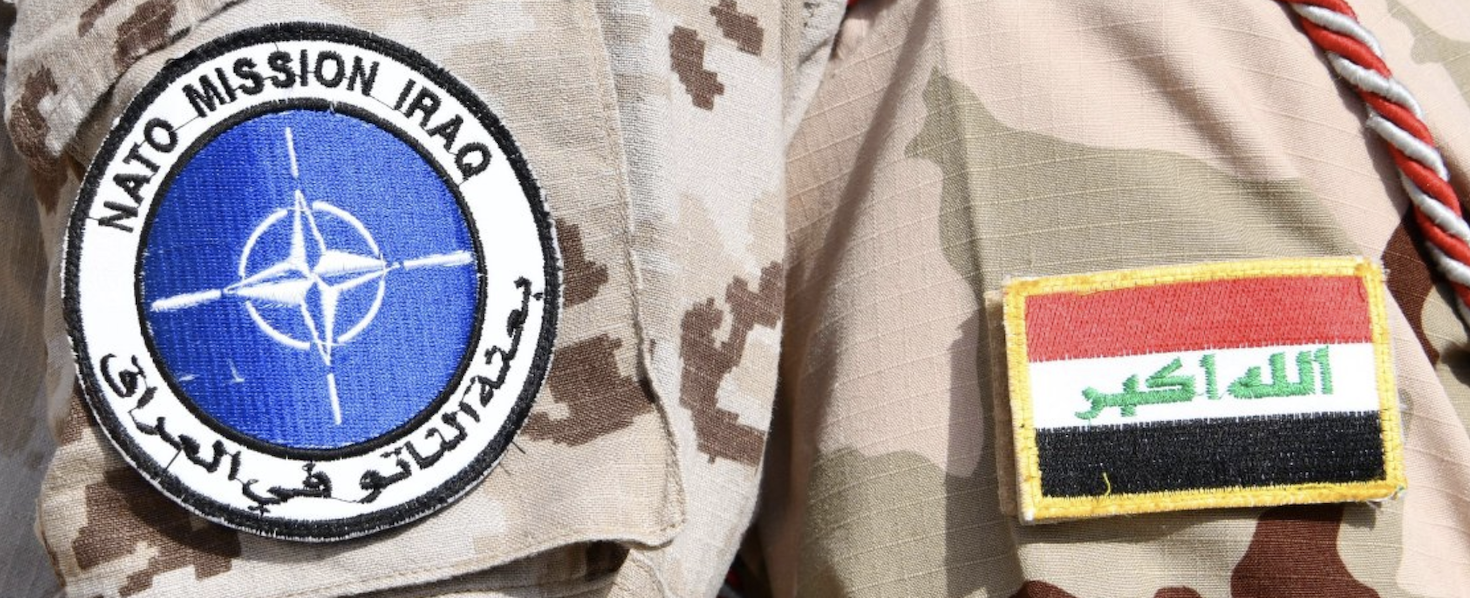Click here for a Word document of the NATO Operations in Iraq Overview Page

2018 to date
NATO Mission Iraq (NMI) II: since 2021
Key Information
- In February 2021, NATO defence ministers agreed to expand NMI, as requested by the Iraqi government.
NATO Mission Iraq (NMI) I: 2018-2021
Key Information:
- On the request of the Iraqi government, NATO agreed to establish an advisory, training and capacity-building mission in Iraq in October 2018. NATO Mission Iraq (NMI) is helping to strengthen Iraqi security forces and Iraqi military education institutions so that Iraqi forces can prevent the return of ISIS/Da’esh.
2011-2018
NATO- Global Coalition to Defeat ISIS/Daesh
Key Information
- At the 2016 NATO Summit, Allied leaders decided to provide direct support to the Global Coalition to Defeat ISIS/Daesh with NATO AWACS surveillance aircraft. They also agreed to provide a training and capacity-building effort within Iraq, at the request of the Iraqi government.
- In January 2017, a small Core Team of NATO civilian and military personnel was established in Baghdad to coordinate training and capacity-building activities in support of Iraqi security forces and institutions. Mobile security sector reform teams began to travel to Iraq to conduct training.
- In May 2017, NATO became a full member of the Global Coalition to Defeat ISIS/Daesh, in which all individual Allies were already taking part.
NATO-Iraq out-of-country training
Key Information
- At the request of the Iraqi government, NATO agreed in July 2015 on a package of defence capacity building measures to provide assistance in a number of priority areas where NATO could provide added value. The first phase of out-of-country training was launched in April 2016, with a ‘train-the-trainers’ course provided to 350 Iraqi officers in Jordan.
- NATO gradually resumed its training and capacity-building activities in 2014 at Baghdad’s request, first from Jordan (at the King Abdullah II Special Operations Training Center) and later through eight personnel deployed to Baghdad in 2017.
NATO-Iraq Defence and Related Security Capacity Building (DCB) Initiative (NATO-DCB)
Key Information
- At the 2014 NATO Summit, Allied leaders expressed readiness to consider undertaking measures with Iraq in the framework of NATO’s Defence and Related Security Capacity Building (DCB) Initiative.
NATO-Iraq Individual Partnership and Cooperation Programme (NATO-IPCP)
Key Information
- 2011: NATO grants Iraq partner status
- September 2012: Individual Partnership and Cooperation Programme signed: framework for political dialogue and tailored cooperation
Brief Summary
- NATO gradually resumed its training and capacity-building activities in 2014 at Baghdad’s request, first from Jordan (at the King Abdullah II Special Operations Training Center) and later through eight personnel deployed to Baghdad in 2017. Meanwhile, the alliance joined the Global Coalition to Defeat IS and provided direct operational support through its AWACS surveillance aircraft fleet, mostly operated by Germany
2004-2011
Key Information
- Trained 15,000 officers
- Discontinued: 31 December 2011: no agreement on legal status of NATO troops in Iraq
Brief Summary
- NATO conducted a relatively small but important support operation in Iraq from 2004 to 2011 that consisted of training, mentoring and assisting the Iraqi Security Forces. At the Istanbul Summit in June 2004, the Allies rose above their differences and agreed to be part of the international effort to help Iraq establish effective and accountable security forces. The outcome was the creation of the NATO Training Mission in Iraq (NTM-I). The NTM-I delivered its training, advice and mentoring support in a number of different settings. All NATO member countries contributed to the training effort either in or outside of Iraq, through financial contributions or donations of equipment. In parallel and reinforcing this initiative, NATO also worked with the Iraqi government on a structured cooperation framework to develop the Alliance’s long-term relationship with Iraq.
